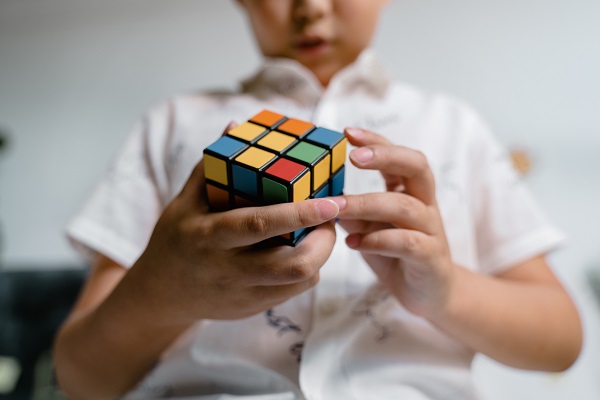How can we better understand and support gifted students?

First, the assessments used to identify gifted children do not work like thermometers or measuring rods. IQ is calculated using a number of combined indices that follow a more or less homogeneous structure. There is no such thing as a “pure” IQ score. It is always necessary to take into account the child’s state of mind when the test was taken, as well as the characteristics of the child or adult under assessment. Intelligence cannot be isolated from other personality traits. A simple number like IQ cannot replace a “diagnosis”: that can only be given by the psychologist carrying out the assessment, who can then write a psychological and intellectual profile.
Being gifted isn't just about having a “high IQ”. Thanks to neuroscience research, we now know that the way gifted individuals’ brains function is different: hyperconnected cerebral hemispheres, higher information processing speeds, faster intracerebral transmission, more efficient divided and sustained attention spans, better memory, and more. These intense brains “capture” the world quickly, take more of it in, and are always running: a factor that can either make life easier or be extremely disruptive. Some patients even say “my brain is full”, “I’m fed up of thinking”, “unplug my brain”…
Moreover, this power of thought, which is deployed at high speed in a tree structure, is continuously connected to the world and integrates all weak signals. This means that awareness, environmental sensitivity, or both internal and external emotional receptivity give these unique people a way of understanding the world that can become—depending on the experiences and personality of each gifted individual—a psychological minefield, or a goldmine.
During childhood, students’ schooling can be impacted by a divide in their learning abilities and interests compared to their classmates—gifted children may be bored, uninterested or withdrawn. Gifted children are often interested in topics that are not appealing to their peers. As a result, they may feel isolated and suffer from feeling different. Others, of course, receive support from their families and are understood by those around them, and have an easy time as students, or are sometimes even brilliant.
It is essential for teachers to be trained in this unique way of thinking, so that they can give these students—who have high learning demands, are curious, and need to delve deeper into everything—what they need to succeed. Their questions are always motivated by the desire to understand, over and over again. It is important not to mistake this behaviour for rudeness. When they are under-stimulated, gifted children can become disruptive out of boredom. Children can lose interest in learning and gradually withdraw from school. A well-integrated gifted student is an enthusiastic asset for the teacher and the entire class. Parents need to be careful when choosing a school that can integrate gifted children in all their complexity, ensuring they develop their full potential.
Being gifted is a unique combination: a high level of cognitive functioning and a certain sensitivity to the world and to others; one never goes without the other. Emotion is a component of intelligence, and vice versa.
Knowing how to identify, understand and support gifted individuals is a major challenge, so that each gifted person, whether big or small, can fully develop their unique skills and turn them into an immense resource in their life.
Jeanne Siaud-Facchin – Psychologist and psychotherapist – Founder of the Cogito'Z Psychology Centres – Author
Additional information
-
Education type:School Education
-
Target audience:Head Teacher / PrincipalPedagogical AdviserResearcherSchool PsychologistStudent TeacherTeacherTeacher Educator
-
Target audience ISCED:Primary education (ISCED 1)Lower secondary education (ISCED 2)Upper secondary education (ISCED 3)
